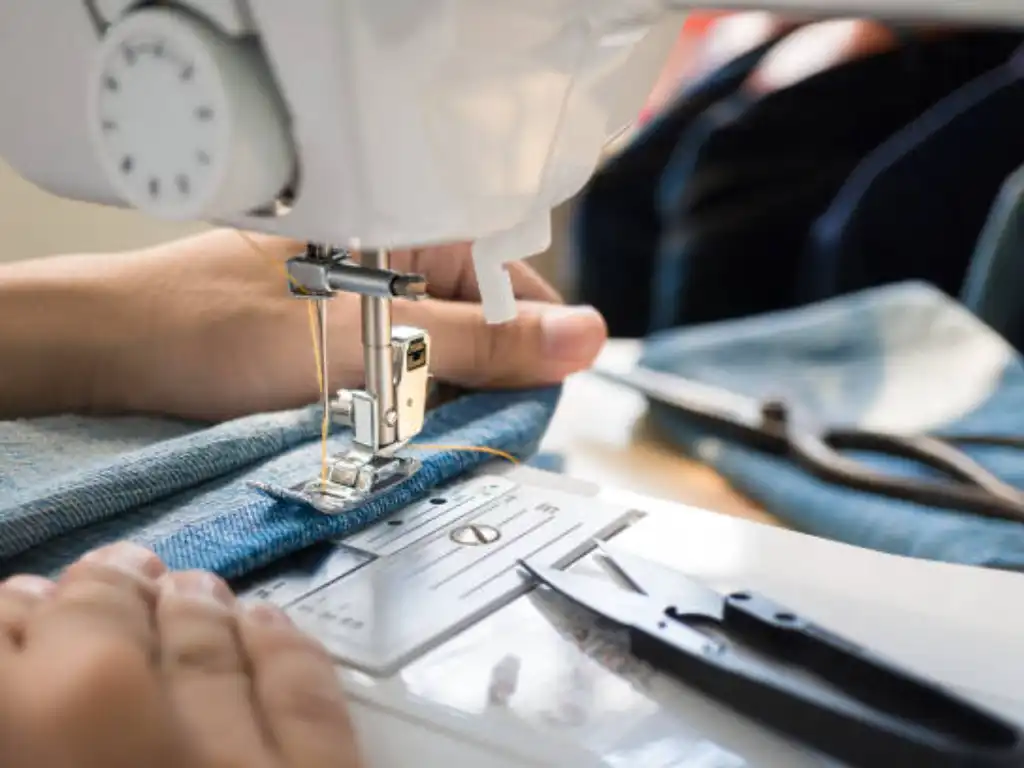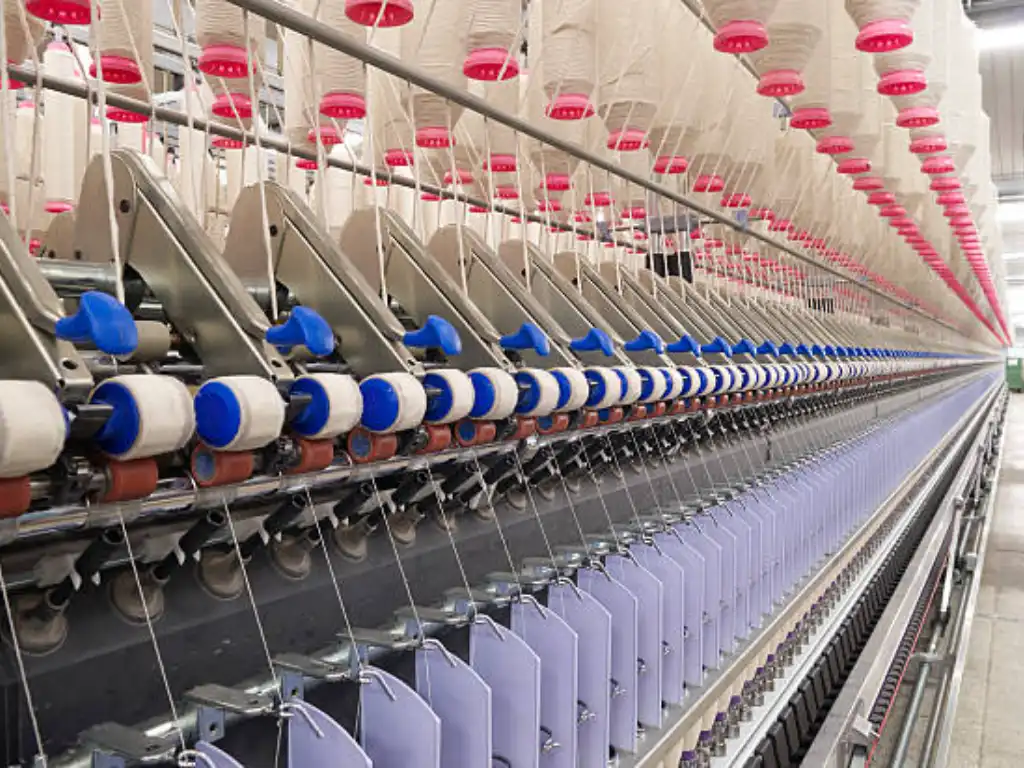Introduction
Establishing your own clothing brand is an exciting adventure that has to be carefully planned and carried out. Selecting the appropriate clothes maker is a crucial stage in this process, which might occasionally resemble trying to find a needle in a haystack. But with the appropriate strategy and understanding, this work might not only be doable but also crucial in laying the groundwork for the success of your brand.
When we discuss the process of finding a clothes manufacturer, we are getting into a vital area for your fashion firm. It’s not enough to locate someone who can make your clothes; you also need to find a partner that shares your ideals, can provide high-quality craftsmanship, and scale with your business as it grows. This guide is designed to walk you through the essential steps, considerations, and strategies to find that perfect match for your brand.
Table of Contents
Understanding Clothing Manufacturing
The Role of a Clothing Manufacturer in Your Fashion Line
A clothes manufacturer is an essential collaborator in the development of your fashion brand, not merely a supplier. Consider them as the link between your imaginative concept and the wearable, actual goods that your clients will adore. They are the ones who take your concepts, drawings, and clothing designs and make them a reality. However, they play a bigger part than only production. They play a critical role in deciding how scalable your company can be, how to maintain quality, and how to uphold the sustainability and ethical standards of your brand.
Every facet of your organization may be impacted by selecting the appropriate manufacturer. A reputable manufacturer guarantees timely delivery of your orders, high-quality production of your ideas, and the ability to scale up production as your firm expands. Based on their experience and knowledge, they may also offer insightful advice on material selections, ways to save manufacturing costs, and even design enhancements.

Domestic vs. Overseas Manufacturers: Pros and Cons
You consider a wide range of elements other than price when choosing between domestic and overseas suppliers. Domestic manufacturers have the benefit of being closer to customers geographically, maybe having quicker turnaround times, and facilitating simpler contact. They frequently more closely match the tastes of consumers for locally produced goods, which may be a powerful selling factor for your company.
However, overseas manufacturers may be able to provide more affordable prices, greater access to a variety of production technology, and the capacity to produce on a far bigger scale. But there are drawbacks as well, such lengthier lead times, possible language problems, and the difficulties in handling foreign shipping and customs.
Every choice you make for your business has good and bad sides. The best choice depends on what your business needs, what you believe in, and what you want to achieve. Think about how much you want to spend, the quality you want, and how fast you need things done. These should match with what your brand is about and what your customers expect. When you’re making this choice, remember to think about how it helps your clothes business in the long run and what it shows your customers about your brand.
| Aspect | Domestic Manufacturers | Overseas Manufacturers |
| Cost | Higher due to labor and materials. | Lower due to cheaper labor and materials. |
| Turnaround Time | Faster due to geographic proximity. | Slower due to longer shipping times. |
| Communication | Easier; no language barrier, similar time zones. | Harder; potential language barriers, time zones. |
| Quality Control | Easier due to proximity. | More challenging due to distance. |
| Market Alignment | High; products match local consumer preferences. | Variable; may not align with local tastes. |
| Logistics | Simplified; no customs for local shipping. | Complex; involves customs, foreign shipping laws. |
Preparing to Find a Clothing Manufacturer
Defining Your Clothing Line’s Needs
It’s essential to know exactly what your clothing line needs before you begin your hunt for the ideal clothes manufacturer. What are the main items you intend to sell? Which textiles and materials are you planning to use? What is the unique selling proposition of your brand, and how does it apply to the specifications of your products? Before you contact any manufacturer, you should have the answers to these important questions.
There is more to defining your demands than just the features of your product. It also entails being aware of your timeframe, quality standards, and manufacturing volume. Are you going to start modest or are you planning a big launch? How can the price and quality be balanced? These factors will help you choose a manufacturer who can not only meet your needs but also grow with your brand.
Budget Considerations for Production
One of the most important factors in your search for a manufacturer is your budget. Finding the best value for your investment is more important than simply locating the least expensive choice. It is essential to comprehend the production cost structure. This covers the cost of manufacturing each unit as well as any additional charges that may be incurred for modifications or special requests, shipping, and customs.
Production budgeting also entails being ready for unpredictability. Variations in labor rates, material costs, or unforeseen costs are all possible. Having a well-defined budget that includes a contingency for unanticipated expenses will enable you to manage these variations without compromising the financial health of your brand.
It helps to consider your price plan at this point as well. How will your retail prices be impacted by your production costs? Is there a sufficient profit to cover additional costs and future expansion for your brand? These are important factors that will determine how you locate and collaborate with wholesalers and clothes manufacturers.
You’re starting the process of building a strong working relationship with a manufacturer by outlining your requirements and knowing what you can afford. It’s about making sure that, when you do discover the perfect manufacturer, you’re prepared to proceed with confidence and effectiveness. It involves balancing the vision of your brand with the realities of manufacturing.

How to Find a Clothing Manufacturer: A Guide for Startups
What You Will Need to Get Started
Finding the ideal apparel manufacturer needs to be approached with preparation. You should have a firm understanding of your brand’s mission, the details of your product, and your business objectives before you even begin contacting possible manufacturers. Having thorough design sketches or samples, a clear notion of the materials you want to utilize, and an estimate of the numbers you want to make are all necessary for this preparation.
Furthermore, it is essential to have a comprehensive business plan. Your brand positioning, marketing strategy, market analysis, and financial predictions should all be included in this plan. Manufacturers are more likely to take your queries seriously and provide you with the help you require if they see that you have a well-thought-out plan and are committed to your business.
Where to Find Potential Clothing Manufacturers?
Trade Shows and Fashion Events
- Trade shows and fashion industry events are great places to network and find possible manufacturers. These gatherings provide a special chance to speak with manufacturers directly, view their own products up close, and begin establishing connections. They are especially helpful for assessing the market, recognizing new trends, and making connections with business experts who might provide advice or insights. Be ready to ask the proper questions and know exactly what you want from a manufacturer when you visit these events.
Online Directories and B2B Marketplaces
- Searching for apparel manufacturers throughout the globe is now simpler thanks to the digital age. Through search engines and B2B marketplaces, you may search through a large number of manufacturers according to your particular requirements. Large databases are available on websites such as Maker’s Row and Alibaba, which provide comprehensive details on manufacturers, including their skills, specializations, and even user reviews. Even if there are a lot of possibilities available on these platforms, it’s important to make sure you’re working with good manufacturers by doing extensive due research.
Facebook Groups
- Fashion and manufacturing-focused Facebook groups may be a great source of information. You may interact with like-minded people in these communities, exchange stories, and seek guidance or suggestions. Members of these groups can provide insights or even direct contacts, since many have been in your position. merely make sure you participate in the community and do it with grace, rather than merely looking for information.
Industry Networks and Referrals
- The best leads might occasionally come from people in your network. Making connections with other business owners, designers, or industry insiders might yield helpful recommendations. Individuals in your network who have previously successfully found a manufacturer can provide recommendations and helpful information. Remember that a solid reference might bring you to reputable and well-vetted manufacturers, so never undervalue its influence.
Step-by-Step Process to Find a Manufacturer
Step 1: Identify Your Niche and Product Type
It’s obvious what to do first: identify your specialty. Your demand for a certain kind of manufacturer depends on your brand’s specialization. Are you getting into sporty clothes, comfortable knits, or elegant evening dress? Manufacturers that specialize in certain particular items may be found in each category. In addition to pointing you in the direction of the ideal manufacturer, your niche makes it easier for you to express the goals and specifications of your brand.

Step 2: Create a List of Possible Manufacturers
Now that you know your niche inside and out, it’s time to put together a solid list of possible producers. This list need to be as extensive as feasible, incorporating both local and foreign choices. Utilize the previously discussed research techniques to compile a diverse variety of connections. Having a wide range of options will help you choose the one that best suits your brand.
Step 3: Evaluate Their Capabilities and MOQ
Now, explore each manufacturer’s capabilities in more detail. Are they able to meet your needs for both quantity and quality? Do they have prior experience with your particular product? We should also talk about minimum order quantities (MOQ) at this time. Comprehending MOQ is essential since it must coincide with your inventory plan and budget.
Step 4: Speak with and Inspect the Chosen Manufacturers
After that, get in touch with the manufacturers you have identified. Prepare a thorough inquiry that contains specific inquiries, product specifics, and a description of your brand. You should be able to assess their responsiveness, cooperation, and comprehension of your brand’s requirements with the use of this communication.
Step 5: Request Samples and Review Quality
Get samples before making any commitments. This is an essential stage in evaluating the caliber of their work. You may learn a lot about the manufacturer’s attention to detail, material quality, and craftsmanship from the samples. They ought to be in line with the high standards of your brand.
Step 6: Discuss Pricing and Negotiate Terms
It’s time to discuss the figures with a manufacturer who satisfies your requirements. Talk about price in-depth, being aware of all the expenses. Never be afraid to bargain for conditions that are reasonable and advantageous to both sides. In addition, lead times, payment conditions, and any other contractual information should be discussed.
By taking these actions, you’re searching for a relationship rather than just a manufacturer. Through this procedure, you can be confident that the manufacturer you choose can not only make your clothes line, but also understand the principles that distinguish your brand, such as sustainability or quality. We’ll look at how to establish a long-lasting relationship with them in the upcoming parts.

Building a Relationship with Your Manufacturer
Communication Best Practices
If you want your cooperation with your garment manufacturer to be successful, it all starts with effective communication. Creating lines of communication that are honest, open, and reliable is essential. This entails communication that is clear and succinct, timely replies, and frequent updates. To ensure a successful cooperation, all sides must be in agreement while discussing design specifics, managing production difficulties, or organizing logistics.
When working with foreign manufacturers, it’s a good idea to employ a variety of communication channels, such as phone conversations, email correspondence, and maybe video conferencing. To further prevent misunderstandings, it is advisable to record all important conversations and choices.
Establishing Clear Expectations and Timelines
It’s critical to set clear expectations early on for the quality of the final product, the schedule for production, and any other essential deliverables. This clarity guarantees that the manufacturer knows what is needed and when, in addition to helping you manage your own expectations and plans.
Timelines must to be precise, taking into account any unanticipated delays, and they ought to be made apparent to the manufacturer. Frequent check-ins may assist keep an eye on things and handle any problems that may come up, keeping production moving forward.
The Value of Building Trust
A vital component of every business partnership is trust. Establishing a strong foundation of trust involves paying invoices on time, keeping lines of communication open, and demonstrating respect for your manufacturer’s expertise. Therefore, you may expect a reputable manufacturer to go above and above for you, provide better terms, or respond to your urgent requirements more quickly.
Long-Term Collaboration
There are several advantages to considering your partnership with your manufacturer as a long-term endeavor. Manufacturers that see you as a long-term collaborator are inclined to make investments in learning about your company and its offerings, propose enhancements and novelties, and deliver a more steady and dependable level of support.
You’re not only obtaining a supplier when you take the time and make the effort to cultivate a cordial, courteous, and cooperative connection with your manufacturer; you’re also receiving a collaborator who can help your brand succeed and expand.
Alternative Manufacturing Models
Dropshipping
An alternate production and distribution strategy that is becoming more and more popular is dropshipping, particularly with emerging and internet-focused firms. Under this arrangement, the items are sold via your platform, but the manufacturer or a third-party source handles the manufacturing and delivery directly. As a result, there is less risk and upfront investment in starting an online business because you don’t maintain inventory.
Dropshipping includes disadvantages in addition to benefits like reduced start-up costs and easier logistics. Less control over lead times, customer satisfaction, and product quality exists. Furthermore, profit margins may be less than in conventional manufacturing methods. If you’re thinking about dropshipping, pick a reliable partner, make sure there’s good communication, and come to an agreement on standards to protect the reputation of your business.
Wholesale
Another model to think about is wholesale buying, which is getting your goods in bulk at a manufacturer’s discounted price. Although there is a greater initial outlay of funds with this strategy, inventory, price, and branding can all be more effectively managed.
Purchasing in bulk might be especially advantageous if you have a proven demand for your products and are looking to scale. In comparison to dropshipping, it also offers greater customisation and branding options. To prevent overstocking or stockouts, however, strong sales and inventory management techniques are essential.
5 Leading Clothing Manufacturers by Category
1. Fangyuan Jackets: A Premier Jacket Manufacturer
Fangyuan Jackets, a producer of premium outerwear established in 1992, Ningbo, China, has made a name for itself in the international clothing market. Fangyuan, in contrast to other manufacturers, concentrates on OEM services, enabling businesses to realize their distinctive ideas while guaranteeing excellent quality. Fangyuan Jackets is distinguished by its dedication to utility and durability, as seen by its use of premium YKK zippers and an extensive selection of over fifty varieties of outstanding materials. Due to their emphasis on OEM services, the firm excels at realizing the unique visions of their clients, adding a high degree of quality and customisation to every project. Due to their commitment to sustainability, Fangyuan is a favored partner for businesses that uphold environmental responsibility in both their material and manufacturing choices.
2. Bali Swimwear: Pioneers in Sustainable Swimwear Production
In the cutthroat swimwear industry, Bali Swimwear distinguishes out for its unmatched workmanship and commitment to moral production methods. Design, pattern-making, and distribution are just a few of the services that Bali Swimwear provides, with a focus on both bespoke and ready-to-wear collections. Because of their proficiency in utilizing premium, eco-friendly fabrics and their ability to stay on top of fashion trends, swimsuit businesses targeting the premium market sector highly value them for their customization options.
3. Bomme Studio: Renowned Kids Clothing Manufacturer
In the kids’ apparel industry, Bomme Studio is a well-known brand that is renowned for its creative designs, excellent craftsmanship, and ethical production practices. Bomme Studio provides full-package production services from design to completion, with an emphasis on small to medium-sized runs. Among boutique and high-end children’s clothing manufacturers, they have a devoted following thanks to their dedication to producing long-lasting, fashionable, and eco-friendly clothes for kids.
4. JM Knitwear: Masters of Knitted Fashion
JM Knitwear, located in Navsari, India, has been making knitwear for decades and is well-known for its superior quality. For men, women, and kids, they have a large selection of knitwear items, such as cardigans, sweaters, and accessories. JM Knitwear creates classic and avant-garde items by fusing traditional craftsmanship with contemporary technologies. They are a favored partner for both established and up-and-coming fashion businesses because of their commitment to client pleasure and flexibility in responding to market trends.
5. Dongguan Uga Fashion: Leaders in Eco-Friendly Yoga Wear
One of the top producers of yoga and athletic gear, Dongguan Uga Fashion is well-known for its fine craftsmanship and high-quality materials. Their line of products, which consists of yoga shirts, trousers, and accessories, is made with comfort, style, and durability in mind. Because of Uga Fashion’s dedication to sustainability in both their material selection and production methods, eco-aware yoga and fitness firms frequently use them. Their unwavering focus on quality control and customer service guarantees that every product is produced to the highest possible standards.
To sum up
When developing and expanding your clothing business, one of the most important steps is selecting the appropriate apparel manufacturer. A partner who shares your brand’s values, quality standards, and future vision is crucial. Production is not the only consideration here.
A successful and long-lasting brand is built on the meticulous planning, investigation, and development of a solid rapport with your manufacturer. Keep in mind that the success of this collaboration may greatly impact the trajectory of your business, so put in the required time and effort to ensure it is successful.
Selecting an appropriate manufacturing partner may be crucial, regardless of your stage of growth or expansion. In order to help your brand expand and succeed, take your time, conduct research, and cultivate a relationship.
